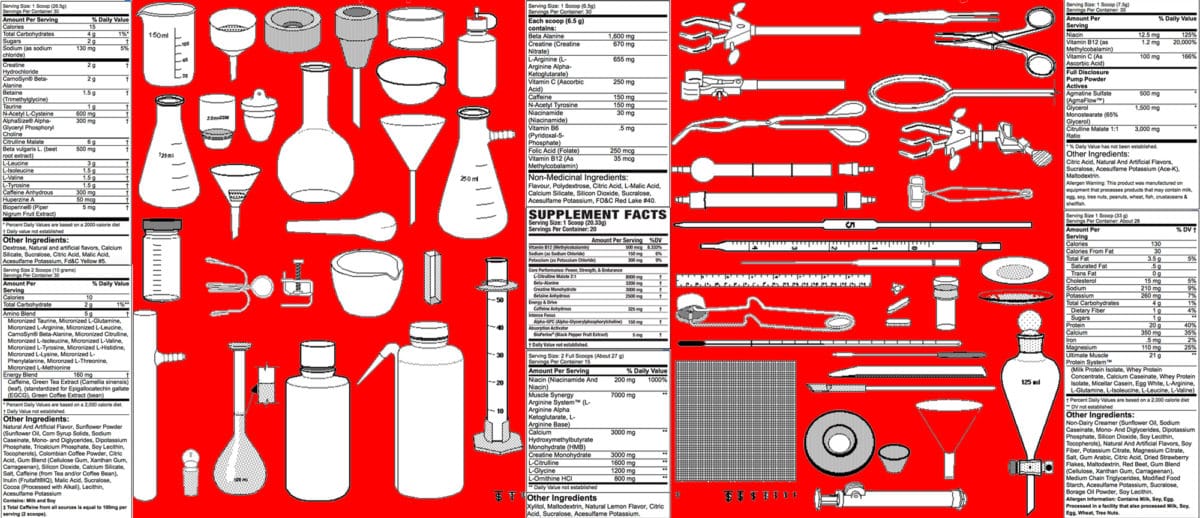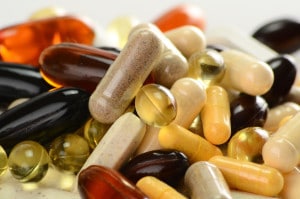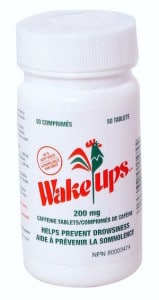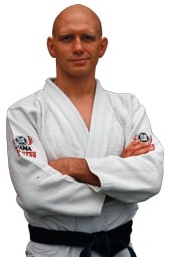
Pre-workout supplements used to be mostly for weightlifters and bodybuilders. But now more and more jiu-jitsu practitioners are taking them before BJJ class in order to train longer and harder.
Do they work? Sorta, kinda…
Are they safe? Not at all.
Is there a better alternative? Definitely!
Let’s look into pre-workout supplements, especially with regards to students of BJJ.
 In general I’m pretty negative about most bodybuilding and athletic supplements. Their main effect is to make your urine expensive and the supplement companies richer.
In general I’m pretty negative about most bodybuilding and athletic supplements. Their main effect is to make your urine expensive and the supplement companies richer.
And when it comes to making money, rigorous science usually goes out the window.
Now I can already hear the indignant protests from some readers… “But Stephan, I use NOX pre-workout Neutron Bomb Brain Exploder from Heisenberg Labs. It boosts my bench press by 25 lbs and allows me to roll twice as long!!!”
Well, pre-workout supplements do work. But probably not for the reason advertised…
Typically pre-workout concoctions have about 10 to 20 ingredients. Look at the labels: they’ll feature an impressive looking list of chemical alphabet soup. Everything from beta-alanine (to ‘promote muscular endurance’), N-acetyl tyrosine (to ‘improve mental function’), beta-methylphenethylamine (a precursor to amphetamine), and too many other ingredients to list here.
If you read the so-called ‘literature’ for any of these products you’d be led to believe that an elite team of genius scientists had laboured for years, scouring the rainforests of the world for rare plants and pouring over thousands of scientific journals to find the exactly optimal synergistic mix of secret ingredients which will allow you to work out harder, longer and faster.
But usually the studies cited are very small. And poorly controlled. And published in journals of dubious quality. And not replicated.
Junk science in other words.
So if the science is crap then why do so many people report increased energy and intensity in their workouts after taking these supplements?
The answer is simple: almost all of these supplements contain a boatload of caffeine.
A friend came to me recently with a jar of pre-workout powder in his hands. “Stephan,” he said, “I really like taking this stuff, especially in the afternoons at work when I’m getting tired. Do you think it’s good for me?”
He then admitted to often taking twice the recommended doseage. We looked at the ingredients and it became apparent that his one drink contained the equivalent of 10 espresso coffee shots of caffeine.
No wonder he was feeling perky afterwards!
The typical pre-workout supplement contains anywhere from 150 to 400 mg of caffeine (a typical cup of coffee has about 100 mg of caffeine).
So you’re getting a huge kick from caffeine, especially if you’re doubling the dose.
Plus these pre-workout supplements often just loaded with sugar too. Essentially you have no choice but to workout after drinking of these puppies, because if you don’t then you’re going to go into hyperglycemic shock!
The winning formula for pre-workout drinks seems to be CAFFEINE + SUGAR + A WHOLE BUNCH OF OTHER CHEMICALS.
Now maybe some of these other chemicals synthesized in a lab have some sort of positive benefit. But if that’s true then why don’t people usually take these chemicals on their own? Why are they always mixed in with a million other ingredients?
Don’t believe the hype that these chemicals work ’synergistically’ and that the net effect of taking them all together is somehow magically greater than the sum of the parts.
The main reason for these other ingredients being added is to differentiate one pre-workout supplement from the next.
Unfortunately there’s some evidence that certain supplements marketed to the gym crowd are actually pretty dangerous.
The onus should be on the manufacturers to prove their supplements safe. But the reverse seems to be true: you can keep on adding more and more different chemicals to a product until someone gets around to proving an ingredient unsafe.
Do you really think that a sufficient amount of research has been done to establish a safety margin for beta-methylphenethylamine, alpha glycerylphosphorylcholine, agmatine sulfate, and the hundreds of other chemicals that get thrown into these drink mixes in Chinese factories?
How many years did the cigarette industry successfully deny the link between smoking and cancer? The most conservative answer is 50 years (and in many ways they’re still denying it today). In the end it took decades of research, millions of dollars, and thousands of scientists to establish the link between cigarettes and cancer.
Are similar lab studies and epidemiological studies being done for every single chemical in every single pre-workout supplement?
Not a chance.
The bottom line is that the whole industry is based on moving from the last failure to the next big thing as fast as they can to continue making money. Putting random chemicals in your body because you were assured by some site that it’s safe to do so is pretty dumb.
Are there alternatives?
Well, if you really like the buzz you get from your pre-workout supplement then consider going back to the basics. There’s lots of good research indicating that caffeine helps with most sporting activities so long as you don’t become habituated to it.
So just take caffeine! It’ll be cheaper and a lot safer.
 You’ll have to experiment with it, but if caffeine helps you try downing a coffee before training.
You’ll have to experiment with it, but if caffeine helps you try downing a coffee before training.
Or drink some caffeine-containing green tea if coffee upsets your stomach.
Or swallow a 100 mg tablet of caffeine – at least you know this stuff only has one main ingredient.
(Just keep an eye on your sleep if you start taking caffeine, especially if you take it late in the day. It took me an embarrassingly long time to make this connection: I was quite a bad insomniac for about 10 years before figuring out that I had to stop taking all kinds of caffeine – including my beloved caffeine-containing Chinese teas – by 2 pm at the latest if I wanted to get a good night’s sleep.)
Also try having a powerade or a gatorade before your workout – these contain lots of quick to digest high-glycemic carbs that’ll keep you fuelled during your workout (and if you train hard then you’ll burn off most of the sugar).
Then, after your workout, make sure you hydrate and have some carbs and protein within 45 minutes after you finish – that’ll help your muscles replenish and your body recover faster.
But leave the beta-methylphenethylamine, alpha glycerylphosphorylcholine, agmatine sulfate, and L-histidine HCl in the chemical alphabet soup bubbling away in Walter White’s lab and don’t put it in your body!
Train hard, but don’t be stupid. Focus on the long game!
Stephan Kesting
P.S. If you would like to be notified about other training articles like this (and download a copy of my guide to learning BJJ fast) then click here and sign up for our free BJJ newsletter.


